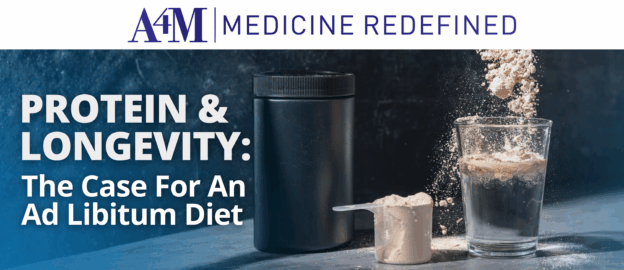The concept of eating for longevity has been around for thousands of years — it was, after all, Hippocrates who advised “Let food be thy medicine” back in the fourth century BCE. Modern health and aging experts agree with the Father of Medicine, but have differing ideas about the kind of diet that provides optimum lifespan benefits. Now that a new study published in Aging Cell shows lifespan benefits associated with an ad libitum diet, some experts may be rethinking their dietary recommendations.
The study found that high-protein, low-carbohydrate diets were associated with an increased risk of disease and mortality in rodent models, suggesting that a more comprehensive evaluation of such regimens should be undertaken. In terms of eating to influence health and lifespan, the study concluded that a low-protein, high-carbohydrate (LPHC) diet, diluted 25% with non-digestible fiber, could be an effective way to improve both health parameters and lifespan.
Free Range Feeding
That LPHC diet ideally would be part of an ad libitum approach to nutrition, which allows individuals to eat freely without restrictions on quantity and focuses on satiety while achieving a calorie deficit for weight loss if required. Eating is unrestricted, but nutrition is paramount, and a successful ad libitum diet features foods that are satisfying and nutritious. This allows flexibility in food choices and can lead to a more sustainable experience and positive outcomes.
Adding non-digestible fiber to the LPHC diet slows the absorption of sugar from carbohydrates, stabilizing blood sugar and protecting against obesity, cardiovascular disease, diabetes, and metabolic syndrome. Without providing calories, undigestible fiber — nuts, seeds, bran, berries, beans, peas, lentils, spinach — increases satiety, staves off gastrointestinal issues, and may help lower the risk of colo-rectal cancers.
Reaping the Benefits
Restricted caloric intake without malnutrition has been shown to extend the lifespan and improve metabolic health. Dietary nutrients are critically essential, too. While evidence indicates that the quantity, source, and amino acid composition of proteins are more strongly associated with longevity and metabolic health than caloric restriction, the greatest significant impact on longevity and metabolic health actually comes from the macronutrient balance of diets.
Additionally, specific amino acids (AAs), including methionine or branched-chain AAs (BCAAs), are associated with the regulation of lifespan/ageing and metabolism through multiple mechanisms. Restrictions on methionine or BCAAs may lead to longevity and metabolic health benefits, as epidemiological studies suggest that high intake of animal protein, particularly red meat, which contains high levels of methionine and BCAAs, may be associated with the promotion of age-related diseases. An LPHC diet that’s low in animal protein, especially red meat, may provide health benefits.
Living Longer, Feeling Stronger
In addition to immediate health benefits and a promise of longevity, increased levels of protein restriction were also associated with a delayed onset of neurological phenotypes, indicating that the LPHC can significantly influence health and well-being.
While lifestyle and genetics are important factors in longevity and metabolic health, a renewed focus on diet, especially the macronutrient balance and the role of single nutrients, such as protein, is revealing more to researchers. The protein source may be more important for mortality risk than the level of protein intake. The associations between animal and plant protein intake and the risk of mortality, with animal protein intake related to a higher risk of mortality, particularly CVD mortality, and higher plant protein intake associated with lower all-cause mortality.
Conclusions
The exploration of the effects of dietary protein intake on Ercc1Δ/− DNA-repair-deficient mice — an excellent model for accelerated ageing — showed that restricting dietary protein by 50% extended lifespan in male mice, but not in females. Restricting protein levels beyond 80% improved some neurological health parameters, but further reducing them to 95% had a detrimental effect on appetite. A near doubling of protein intake (and isocaloric compensatory lowering with carbohydrates) significantly shortened lifespan in both sexes.
Because LCHP protein was associated with shortened health and lifespan, the study called for a more comprehensive evaluation of protein-heavy diets, and a fresh look at the benefits of an ad libitum approach to nutrition and wellness.
Sources

